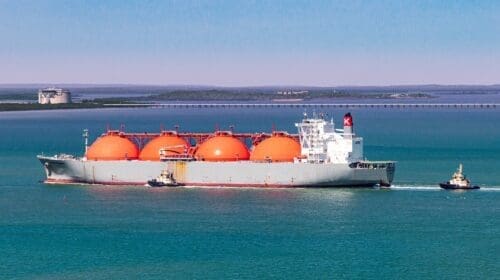WICHITA FALLS—Upstream oil and gas activity in Texas sustained a modest expansion into the 10th straight month in September, according to the Texas Petro Index, which rose to 181.4, 21.4 percent higher than in September 2016 and 22.4 percent higher than in November, when the TPI hit bottom at 148.2.
“Crude oil prices in Texas have been the essence of stability for more than a year,” said Karr Ingham, the economist who created the TPI and updates it monthly, noting that average monthly oil prices in Texas have increased slowly but steadily since dipping to a low of $27.08/bbl in February 2016. “Demand is beginning to show signs of recovery and foreign oil suppliers led by OPEC appear to be committed to maintaining announced production cuts.”
Ingham said another sign that upstream oil and gas companies in Texas have continued to regain economic vitality since the last downturn is the steady increase in numbers of employees producing oil and gas. According to the TPI, the payrolls of companies producing oil and gas in Texas averaged, 222,925 during September, about 30,900 more than the nadir of industry employment, about 192,000 in December 2014.
“Spurred by the little uptick in prices, Texas producers this year through September have recovered nearly 10.8 million barrels more oil than in the first nine months of 2016,” Ingham said. “It is uncertain how long the current pricing environment will continue and where we’ll go from here. But the momentum of the TPI indicates Texas producers will recover a record volume of crude oil during 2018.”
TPI Highlights in September:
- Estimated crude oil production in Texas totaled more than 103.4 million barrels, 11.6 percent more than in September 2016. With oil prices in September averaging $46.06/bbl, the value of Texas-produced crude oil amounted to more than $4.76 billion, about 24 percent more than in September 2016.
- Texas natural gas output declined 2.7 percent compared to September 2016 to slightly more than 639.4 billion cubic feet. With natural gas prices in September averaging $2.79/Mcf, the value of Texas-produced gas decreased 5.6 percent to more than $1.78 billion.
- The Baker Hughes count of active drilling rigs in Texas averaged 453 units, 85.7 percent more units than in September 2016 when an average of 244 rigs were working. Drilling activity in Texas peaked in September 2008 at a monthly average of 946 rigs before falling to a trough of 329 in June 2009. In the economic expansion that began in December 2009, the statewide average monthly rig count peaked at 932 in May 2012 and June 2012.
- The number of original drilling permits issued was 903, 21 percent more than the 746 permits issued in September 2016.
- An estimated average of 222,925 Texans remained on upstream oil and gas industry payrolls, about 16.1 percent more than the revised average of 192,025 in September 2016, but about 24.5 percent fewer than the estimated high of 295,168 in December 2014. According to revised TPI estimates, the trough of upstream oil and gas employment in Texas before the expansion ending December 2014 was 168,711 in October 2009. During the previous growth cycle, industry employment peaked at 211,127 in October 2008.
ABOUT the TPI: The Texas Petro Index is a service of the Texas Alliance of Energy Producers, the nation’s largest state association of independent oil and gas producers.
Alex Mills is the former President of the Texas Alliance of Energy Producers. The Alliance is the largest state oil and gas associations in the nation with more than 3,000 members in 305 cities and 28 states.












